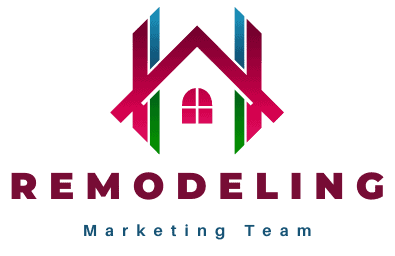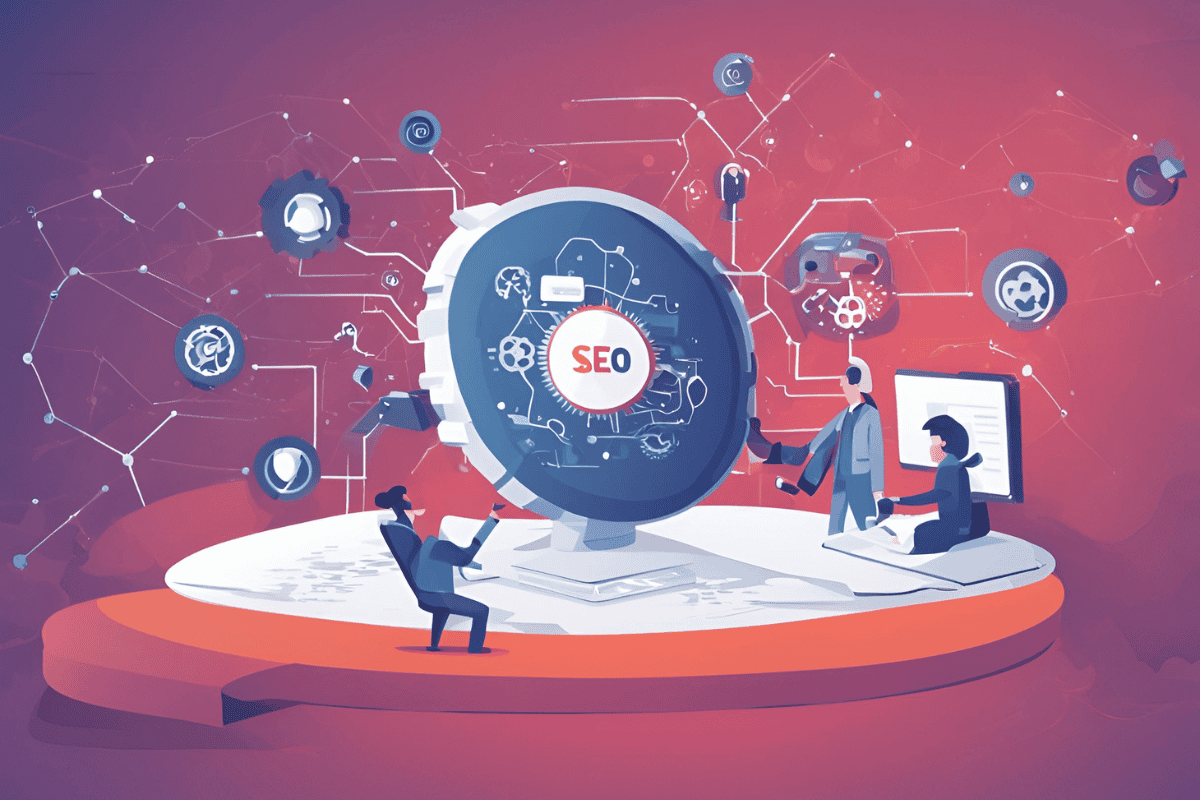Google’s recent rollout of generative AI search capabilities marks a significant shift in the SEO landscape. This evolution is particularly impactful for local home remodeling businesses that rely on visibility in local search results to attract customers. This article explores how Google’s new AI-driven search algorithms affect local SEO strategies and provides actionable steps for home remodeling businesses to adapt and thrive.
Key Takeaways
- Generative AI Search Rollout: Google’s generative AI search uses advanced models like Gemini to enhance search accuracy and user experience by providing more comprehensive and contextually relevant search results.
- Content Optimization: Businesses must create high-quality, AI-optimized content that answers user queries comprehensively. This includes using natural language, answering follow-up questions, and providing in-depth insights.
- Enhanced User Experience: Websites need to prioritize user engagement and satisfaction by improving page load speeds, ensuring mobile responsiveness, and offering intuitive navigation.
- Local SEO Improvements: AI-driven search enhances local SEO by providing detailed and contextually relevant information about local businesses, improving business listings, user reviews, and localized content.
- Evolving Keyword Strategies: Businesses should focus on conversational and long-tail keywords that reflect the phrases and questions potential customers use. AI-driven SEO tools can help identify these keywords.
- Content Marketing Adaptations: Content marketing should include diverse formats such as blogs, videos, infographics, and social media posts, tailored to address specific customer needs and pain points.
- Website Optimization: Conduct regular SEO audits to update and align your website with the latest best practices, including fast loading times, mobile optimization, and secure browsing.
- Leveraging AI Tools: Utilize AI-driven SEO tools to optimize your website and content, and leverage AI for content creation and automation to improve efficiency and quality.
- Challenges and Considerations: Be aware of potential pitfalls such as over-reliance on automation, staying updated with rapid changes, ensuring alignment with user intent, and complying with data privacy regulations.
- Ethical and Privacy Concerns: Balance personalization with privacy, maintain transparency about AI usage, audit AI tools for bias, and prioritize cybersecurity to protect sensitive information.
- Agility and Adaptation: Continuously refine your SEO strategies, stay updated with best practices, and remain agile to maintain a competitive edge in the evolving SEO landscape.
Understanding Google’s Generative AI Search Rollout
What is Generative AI Search?
Generative AI search is designed to enhance the user experience by delivering more accurate and comprehensive search results. This new functionality uses advanced AI models, like Google’s Gemini, to understand and respond to complex queries more effectively. The AI generates detailed answers by synthesizing information from multiple sources, offering users well-rounded, contextually relevant responses.
Purpose and Goals
Google aims to improve the accuracy and usefulness of search results. By leveraging AI, Google reduces the time users spend piecing together information from various sources, enhancing user satisfaction and engagement. For businesses, this means that high-quality, well-optimized content is more crucial than ever.
Key Changes in SEO Due to Generative AI
Content Generation and Optimization
With generative AI, search engines are better at understanding natural language and context. Businesses must focus on creating high-quality, AI-optimized content that addresses users’ queries comprehensively. This involves using natural language, answering potential follow-up questions, and providing in-depth insights.
User Experience (UX)
Google’s AI prioritizes user engagement and satisfaction by understanding user intent more accurately. Websites offering a seamless and engaging user experience will rank higher. Key factors include page load speed, mobile responsiveness, and intuitive navigation.
Local SEO Enhancements
AI capabilities improve local search results by providing more detailed and contextually relevant information about local businesses. This includes enhanced business listings, user reviews, and localized content that matches users’ search intent more precisely.
Implications for Local Home Remodeling Businesses
Increased Competition
The AI-driven search landscape levels the playing field, making it easier for smaller businesses to compete with larger firms. However, it also means businesses need to differentiate themselves more clearly to stand out. Strategies include focusing on unique selling points, showcasing expertise, and maintaining a strong online presence.
Evolving Keyword Strategies
Traditional keyword strategies are evolving to accommodate conversational and long-tail keywords. Businesses need to focus on understanding and incorporating the phrases and questions their potential customers are likely to use. Tools like Google’s Keyword Planner and AI-driven SEO tools can help identify these keywords.
Content Marketing Adjustments
Content marketing needs to adapt to include various formats, such as blogs, videos, infographics, and social media posts. Personalized content that addresses specific customer needs and pain points will be more effective. Additionally, regularly updating and repurposing content can keep it relevant and engaging.
Practical Steps for Adapting to the New SEO Landscape
Audit and Update Your Website
Conduct a comprehensive SEO audit to identify areas for improvement. Update your website to ensure it aligns with the latest SEO best practices, such as fast loading times, mobile optimization, and secure browsing (HTTPS). Ensure your content is well-structured, informative, and optimized for both keywords and user intent.
Optimize for Local Search
Ensure that your business information is accurate and consistent across all local listings. Utilize tools like Google My Business to manage your online presence and encourage customer reviews. Local citations from reputable directories can also enhance your local SEO.
Enhance User Experience
Provide an exceptional user experience by improving site speed, ensuring mobile responsiveness, and creating an intuitive navigation structure. Use engaging visuals, clear calls to action, and easy-to-read content to keep users on your site longer.
Leveraging AI Tools and Technologies
AI-Driven SEO Tools
Utilize AI-driven SEO tools to optimize your website and content. These tools can provide insights into keyword performance, content gaps, and optimization opportunities. Examples include SEMrush, Ahrefs, and Google’s AI tools.
Content Creation and Automation
Leverage AI for content creation and automation. AI can help generate topic ideas, write content drafts, and optimize existing content for SEO. Tools like Jasper and Copy.ai can assist in creating high-quality content efficiently.
Challenges and Considerations
Potential Pitfalls
Adapting to AI-driven SEO presents several challenges that businesses must navigate carefully:
- Over-Reliance on Automation: While AI tools are incredibly powerful, relying too heavily on automation can lead to generic or less personalized content. It’s crucial to strike a balance between automation and human oversight to maintain content quality and authenticity.
- Keeping Up with Rapid Changes: The SEO landscape is continuously evolving, and staying updated with the latest AI advancements can be challenging. Businesses need to commit to ongoing education and agile strategies to keep pace with these changes.
- Misalignment with User Intent: AI’s ability to understand context and user intent is improving, but it’s not infallible. Ensuring that content aligns with what users are genuinely searching for requires continuous monitoring and adjustment.
- Data Privacy and Compliance: Utilizing AI for personalized content and user tracking raises significant privacy concerns. Businesses must ensure they comply with data protection regulations, such as GDPR and CCPA, to avoid legal issues and maintain customer trust.
Ethical and Privacy Concerns
- Balancing Personalization with Privacy: While personalized content can enhance user experience, it must be balanced with respect for user privacy. Overly intrusive personalization can deter users and damage your brand’s reputation. Clear, transparent privacy policies and user consent mechanisms are essential.
- Transparency and Accountability: As AI tools generate content and make decisions, businesses must remain transparent about AI’s role. This includes disclosing AI usage in content creation and being accountable for the information provided by AI systems.
- Bias and Fairness in AI: AI systems can inadvertently reinforce biases present in their training data. It’s important to regularly audit AI tools for bias and ensure they provide fair and unbiased results.
- Security Risks: Implementing AI tools involves handling significant amounts of data, which can be a target for cyberattacks. Businesses must prioritize robust cybersecurity measures to protect sensitive information.
Conclusion
Google’s generative AI search is transforming the SEO landscape, making it essential for local home remodeling businesses to adapt. Key areas of focus include optimizing content, enhancing user experience, and leveraging AI tools effectively.
Local home remodeling businesses should embrace these changes and take proactive steps to optimize their online presence. Staying updated with SEO best practices and continuously refining strategies will be critical to maintaining a competitive edge.
Remaining agile and responsive to SEO trends will ensure that businesses can navigate the evolving landscape and achieve sustained growth.
FAQs
What is generative AI search?
Generative AI search is a technology introduced by Google that uses advanced AI models, like Gemini, to enhance search accuracy and user experience. It provides more comprehensive and contextually relevant search results by synthesizing information from multiple sources.
How does Google’s generative AI search affect SEO?
Google’s generative AI search changes the SEO landscape by prioritizing high-quality, well-optimized content that addresses user queries comprehensively. It emphasizes natural language processing, user experience, and contextually relevant local search results.
What changes should local home remodeling businesses make to their SEO strategies?
Local home remodeling businesses should focus on creating high-quality, AI-optimized content, improving user experience on their websites, utilizing diverse content formats, and leveraging AI-driven SEO tools. They should also ensure their business information is accurate and consistent across all local listings.
How can businesses optimize content for AI-driven search?
To optimize content for AI-driven search, businesses should use natural language, address potential follow-up questions, provide in-depth insights, and focus on conversational and long-tail keywords. Regularly updating and repurposing content can also help maintain its relevance and engagement.
What are the key components of enhancing user experience (UX) on a website?
Key components of enhancing UX on a website include improving page load speed, ensuring mobile responsiveness, creating intuitive navigation, using engaging visuals, and providing clear calls to action.
What are some practical steps for improving local SEO?
Practical steps for improving local SEO include conducting a comprehensive SEO audit, optimizing business information across local listings, leveraging tools like Google My Business, and encouraging customer reviews. Local citations from reputable directories can also enhance local SEO.
What AI-driven SEO tools can businesses use?
Businesses can use AI-driven SEO tools such as SEMrush, Ahrefs, and Google’s AI tools to optimize their website and content. These tools provide insights into keyword performance, content gaps, and optimization opportunities.
How can AI assist in content creation and automation?
AI can assist in content creation by generating topic ideas, writing content drafts, and optimizing existing content for SEO. Tools like Jasper and Copy.ai help businesses create high-quality content efficiently.
What challenges might businesses face when adapting to AI-driven SEO?
Challenges include over-reliance on automation, staying updated with rapid changes, ensuring alignment with user intent, and complying with data privacy regulations. Businesses must balance automation with human oversight to maintain content quality and authenticity.
What ethical and privacy concerns should businesses consider with AI-driven SEO?
Businesses should balance personalization with user privacy, maintain transparency about AI usage, audit AI tools for bias, and prioritize cybersecurity to protect sensitive information. Clear privacy policies and user consent mechanisms are essential.
How can local home remodeling businesses stay competitive in the evolving SEO landscape?
To stay competitive, businesses should continuously refine their SEO strategies, stay updated with best practices, and remain agile to adapt to changes. Focusing on high-quality content, enhancing user experience, and leveraging AI tools effectively are key to maintaining a competitive edge.
This article is a collaboration between Carl Willis and OpenAI’s ChatGPT. Created on June 11, 2024, it combines AI-generated draft material with Willis’s expert revision and oversight, ensuring accuracy and relevance while addressing any AI limitations.






